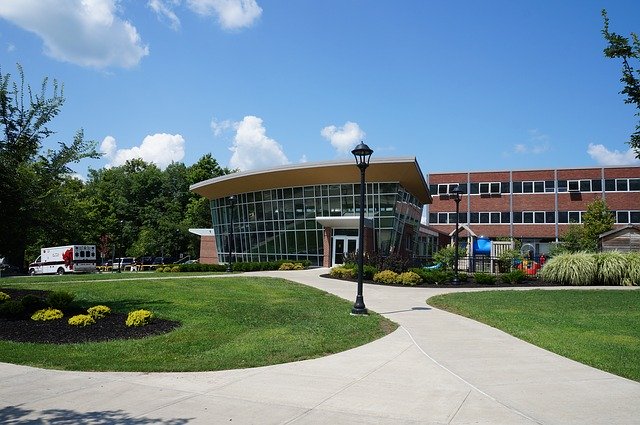- Posted on
- Unique Submission Team
Best Higher Education and Developing Economies Assignment
Higher Educational Organizations are trying to make the learning procedure into the next level by being an integral part of developing the individuals globally.
It offers high skills that are essential to successfully participate in the labor market. The higher educational institutions are also responsible for providing training initiatives for entrepreneurs, humanists, engineers, civil servants, nurses, doctors, social scientists, and others (Wills et al, 2018).
An educated populace is necessary for the advancement of the communities which increases the necessity to take part in providing education to the developing nations.
Hertfordshire Business School is a University that provides educational courses and training under Bachelor, Masters, and higher levels (Hertfordshire Business School, 2020). The university is planning to enter international locations, such as Egypt and South Korea.
It is essential here to check the viability of the factors that will help the institution in providing a sound education to the pupils.
The report will highlight the macro and meso ambiance which might impact the marketing strategy and approaches that will be taken in Egypt and South Korea.
Providing PESTLE evaluation and Porter Five Fore evaluation is necessary t understand the mode of entry in these two nations.
Relevant theories will be aligned to highlight the comprehensive understanding of the market viability options concerning the Hertfordshire Business School.
Evaluation of the University’s Opportunity and Threats
There are various opportunities for University in the international market due to the following reasons:
- The faculty of the university has high credentials thus increasing the ability of the university to offer and deliver quality and expertise knowledge to its pupils.
- The University has educational infrastructure which is high tech and from the time it is upgraded for increasing the efficiency in delivering knowledge.
- The population of the student and the faculty members constitute different cultural background thus increasing the efforts of collaboration and coordination.
- The learning ambiance of the university provides positive vibes to the students and is considered to be productive for the students to learn.
- The university takes responsibility for organizing training activities and workshops for faculty and students to increase the coordination and quality of the educational performance.
- The educational courses offered by the University are affordable and unique
- Counseling sessions are provided to the parents and the pupils to increase the emotional understanding and facilitate the personal career development of the ward

The University must increase its brand awareness as it does not have an international presence. Increasing the awareness about the presence of the University will help the nationals of international locations to know about the institution which will help in increasing the student count.
As most of the people are interested in online courses, so it will feasible for the university to provide online courses that will help the university in increasing its virtual presence globally (Walsh et al, 2015).
As the University has a populace with a multicultural background, so it is advisable to initiate multilingual educational courses facilitating the opportunity for students to participate without restrictions.
Hertfordshire Business School might face a threat due to the following reason:
- Lack of unity among the members of the faculty (Oderanti and Li, 2018)
- No such external contribution to the financial concerns of the university
- The objectives of the university are not clearly illustrated and implemented
The threats impose challenges for the University in providing seamless and sound education. As there is a lack of unity among the faculty, thus it will lead to confusing decision making and mismanagement of the activities.
Students tend to have a perception that educational University in International locations is expensive and requires huge amounts of financial support. This mindset acts as a social hindrance for the pupils to go to a new place and start educational initiatives (Mowles, 2015).
Pestle Evaluation in South Korea and Egypt
While entering a new market, the organization must evaluate the macro environment as it will help the University in creating strategies in advance.
| PESTLE Factors | South Korea | Egypt |
| Political Factors | The political situation of the nation in the past was disturbing in nature and later with the implementation of the Centralization policy, the process of the regulation application became straight forward (Kovacevic, 2017). The nation has strong political support from the United Nations. The nation also has strong international connections that help the nation in fostering economically. It has also increased its international bonding with the European Union which helps in carrying out business activities. | The political scenario of Egypt is unstable as it encounters threats from terrorists. The nations have faced risk from the North of Sinai. Egypt has also political issues with other nations, which is not sound for an educational institution to operate. Ethiopia and Egypt have complex issues concerning the Nile River. The nation has not allowed the liberalization of democracy amongst its people. |
| Economic Factors | The nation is regarded as a strong exporter which indicates the fund flow source of the nation which is high. The tax policy is competitive which will be favorable for Hertfordshire to regulate in South Korea. The corporate tax is 10%. The service sector of the nation is considered to be liberalized (Li, 2017). | The corporate tax in Egypt is 22.5% signifying a high rate than compared to South Korea. The nation does not charge and local tax or governor rate on the corporate tax. The inflation rate of the nation is also high signifying that the University has to charge higher in Egypt than what it used to charge in other nations. |
| Social Factors | The wages and the salary of the nation are high than compared of any other nation, signifying it will be a huge motivating force for faculty recruitment in South Korea. The literacy rate of the nation in 2018 was 97.9% signifying that Hertfordshire needs to provide an excellent education to survive in the nation and to attain long term success (Education in South Korea, 2020). Due to the increase in the scenario of urbanization, there are people with high incomes and an understanding of the knowledge that education is important (Islam and Mamun, 2017). | The rate of unemployment is high as there is a high amount of ongoing illegal activities (Matthies-Boon, 2017). In the face of corruption, no new business can flourish due to constant and unnecessary pressure. This indicates that Egypt is not a good foundation for an educational institution to flourish. |
| Technological Factors | The nation is well known for its technological innovation and fostering the telecommunication sector. There is the presence of a large number of domestic and international technology companies that can assist the Hertfordshire Business School in building technological capabilities. | The technological capability of the nation is very poor. This will not help the university to have an adequate and efficient tech ambiance. |
| Legal Factors | The nation provides favorable tax policies to the FDI. This ensures the sustainable functioning of the University’s presence. The national system of law-making is stringent and must be adhered to avoid fines. | Due to the continuous war between democracy and military rule, Egypt never had a stable legal environment. There are loose ends in the implementation of legal guidelines in the nations which is a threat for is a progression of the business (Gabr et al, 2017). |
| Environmental Factors | The nation has abundant natural resources and with the initiatives of the government, the nation ha initiated environment-friendly technology to reserve and conserve its resources. The government follows stringent measures to safeguard its environment. This ensures that the University must lay the importance of its enhancing its corporate social responsibility elements to operate sustainably. The government lays significance on fostering environmental education to increase awareness among the people concerning its sustainable advancement (Yli-Huumo et al, 2016). | The significant and abundant natural resource that the nation is the Nile river. The river is used as an industrial dumping ground. The polluted water affects the natural crops of the farmers and the government has not strict attention towards it. This makes a polluted ambiance for the University, which is harmful and undesirable. |
Table 1: Pestle Evaluation for South Korea and Egypt
(Source: Learner’s Creation)
Porters Five Force Evaluation for South Korea and Egypt
| Porters Five Force Evaluation | South Korea | Egypt |
| Bargaining power of the suppliers | The labor of the nation is highly intensive towards their work attitude, suggesting the fact that it has high bargaining power. There is a high requirement for teachers, researchers, and professors. | The literacy rate of the nation is not high and the suppliers concerning the educational are not that proficient to depart the educational qualities to the students. The bargaining power of the suppliers is low here (Roachm 2019). |
| Bargaining power of the buyers | The universities design the sources according to the requirement of modern society signifying the high bargaining power of the buyers (Chung and Choi, 2016). | The growing population is putting a lot of strain on the educational advancement of the nation as they require funds and other operational capacities. This will a lot of pressure on Hertfordshire to function in Egypt |
| Competitive Rivalry | There are various educational institutions in South Korea signifying high market competitor for the Hertfordshire to survive. | There are not many educational institutions in Egypt that will have proper infrastructural facilities with whom it can partner. The competitive rivalry is low. |
| Threat of Substitutes | The substitutes in the South Korean educations sector are the online courses that the companies offer. Distance education is also another substitute for the Hertfordshire university. However, the quality of education differs signifying low power of the substitutes in the market (Lo et al, 2017). | Distance and online education are prevalent in the Egyptian nation. There is the availability of a low substitute in the Egyptian nation ( Chinapah, 2016). |
| The threat of New Entrants | To enter the market of South Korea, high investment is needed suggesting restricting the entries to those who have the high financial capability in survising in the nation. The threat for new market entrants is low indicating it will be a good initiative to enter the market with requirements that will help in creating a dominant reputation than the other. | Due to the low social and economic progress of the nation, not many institutes or organization takes an interest in entering the nation. But, due to fewer regulations and low investment, it is easy for market entry (Khalil, 2015). This signifies that the threat of entrants is high. |
Table 2: Porter’s Five Force Evaluation
(Source: Learner’s Creation)
The HBS can implement Greenfield investment that will support building the required educational infrastructures and resources required for the sound operation of the university (Lee and Ries, 2016). It will aid in generating employment and thus increase the purchasing capacity of the nation. The institution has to make strategies that will help in bearing expenditure and related risks.
Due to liberalization in the trade policies in South Korea, it will be advisable for the nation to enter the market. Standardization strategy will help the institution in optimizing the cost associated with the international operation (Kraus et al, 2016).
Based on this strategy the university can implement similar kinds of marketing programs, promotional strategies, pricing, and educational courses. This will increase the homogenization of the educational courses among the student of the university thus increasing student collaboration.
This will increase the uniformity of the Hertfordshire Business School (Shams and Huisman, 2016).
As the students in South Korea will be different from the students in the United Kingdom, so the company must go for an adaptive strategy. This will help in catering to the cultural requirement of the students.
Here the university must Differentiation strategy to make their courses unique and relevant. The courses can be modified according to the geographical status of the university.
Advertising on social media channels will attract students to the university. The institution must go for diversification or a market development plan (Ansoff Matrix) (Cleberg, 2016).
The report has mentioned about the mode of entry that the HBS must take to provide operational capabilities and resources in the international location.
From the study, it can be concluded that, for the HBS, South Korea is the best option which will help the University to sustainably operate.
The University is recommended to provide and introduce online and distance education courses to increase the number of international students. Introducing courses concerning Environmental Awareness in South Korea will help the institution in attracting government aid.
Egypt’s unstable political, economic and social factors lay restrictions for the progression of the Hertfordshire Business School.

Chinapah, V., 2016. Egypt educational context. Building the Capacity of Faculties of Education, p.17.
Chung, J. and Choi, T., 2016. English education policies in South Korea: Planned and enacted. In English language education policy in Asia (pp. 281-299). Springer, Cham.
Cleberg, C., 2019. Strategic Success: The Ansoff Matrix vs. The Balanced Scorecard.
Education in South Korea (2020). Diversity and Access to Education. Available at: https://sites.miis.edu/southkoreaeducation/diversity-and-access/ (Accessed: 7 March 2020).
Gabr, S.K., Bakr, R.O., Elshishtawy, H.M., El-Fishawy, A.M. and El-Alfy, T.S., 2017. Botanical and genetic characters of Erythrina× neillii cultivated in Egypt. Revista Brasileira de Farmacognosia, 27(3), pp.273-281.
Hertfordshire Business School (2020). Available at: https://www.herts.ac.uk/study/schools-of-study/business (Accessed: 7 March 2020).
Islam, F.R. and Mamun, K.A., 2017. Possibilities and challenges of implementing renewable energy in the light of PESTLE & SWOT analyses for island countries. In Smart Energy Grid Design for Island Countries (pp. 1-19). Springer, Cham.
Khalil, S., 2015. Career guidance as educational innovation: The case study of Egypt. Indian Journal of Career and Livelihood Planning, 4(1), pp.5-10.
Kovacevic, L., 2017. Testing The Waters In South Korea (Doctoral dissertation).
Kraus, S., Meier, F., Eggers, F., Bouncken, R.B. and Schuessler, F., 2016. Standardisation vs. adaption: a conjoint experiment on the influence of psychic, cultural and geographical distance on international marketing mix decisions. European Journal of International Management, 10(2), pp.127-156.
Lee, H.H. and Ries, J., 2016. Aid for trade and greenfield investment. World Development, 84, pp.206-218.
Li, S.,2017. A PESTLE Analysis of the Cryptocurrency Industry: An Investment Perspective.
Lo, A., Abelmann, N., Kwon, S.A. and Okazaki, S. eds., 2017. South Korea’s education exodus: The life and times of early study abroad. University of Washington Press.
Matthies-Boon, V., 2017. Shattered worlds: political trauma amongst young activists in post-revolutionary Egypt. The Journal of North African Studies, 22(4), pp.620-644.
Mowles, C., 2015. Managing in uncertainty: Complexity and the paradoxes of everyday organizational life. Routledge.
Oderanti, F.O. and Li, F., 2018. Commercialization of eHealth innovations in the market of the UK healthcare sector: A framework for a sustainable business model. Psychology & Marketing, 35(2), pp.120-137.
Roach, E. (2019) Education in Egypt, WENR. Available at: https://wenr.wes.org/2019/02/education-in-egypt-2 (Accessed: 7 March 2020).
Shams, F. and Huisman, J., 2016. The role of institutional dual embeddedness in the strategic local adaptation of international branch campuses: Evidence from Malaysia and Singapore. Studies in Higher Education, 41(6), pp.955-970.
Walsh, C., Moorhouse, J., Dunnett, A. and Barry, C., 2015. University choice: which attributes matter when you are paying the full price?. International Journal of Consumer Studies, 39(6), pp.670-681.
Wills, W.J., Danesi, G., Kapetanaki, A.B. and Hamilton, L.K., 2018. The socio‐economic boundaries shaping young people’s lunchtime food practices on a school day. Children & Society, 32(3), pp.195-206.
Yli-Huumo, J., Ko, D., Choi, S., Park, S. and Smolander, K., 2016. Where is current research on blockchain technology?—a systematic review. PloS one, 11(10), p.e0163477.


